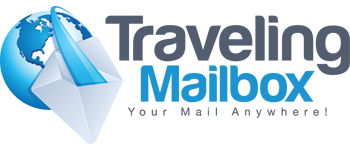7 EXPERT TIPS FOR WFH FREELANCERS (2023 GUIDE)
In this post-COVID world, it’s very popular to work from home as a freelancer. To take full advantage of the benefits, follow these seven secrets from long-time freelancers!
For anybody who has struck out on their own freelancing journey, you already know the joy that comes from being your own boss, setting your own hours, and embracing the flexibility of working from anywhere. In today's rapidly evolving job market, freelancing has experienced a significant surge in popularity. In fact, a recent study revealed that freelancers now make up 39% of the U.S. workforce, representing a staggering 57 million people.
However, navigating the intricacies of freelancing can be challenging. For this reason, we’ve pulled together 7 expert tips to help set you on a path to success.

1. Establish a Dedicated Workspace
Working from a computer while in bed may seem like a dream scenario, but for most freelancers it can quickly turn to a nightmare.
For the sake of your long-term mental health, this kind of dedicated workspace is important for multiple reasons:
• Increased Focus & Productivity: There needs to be a separation between your work life and personal life. Creating a dedicated area for work helps your mind concentrate on the work that needs to be done.
• Minimized Distractions: It’s far too easy to be distracted by chores, family members, or other entertainment.
• Improved Work-Life Balance: A dedicated workspace means that when you step away, you’re allowed to mentally “disconnect” from work
2. Take Your Wardrobe Seriously
Sure, there are advantages to being your own boss and essentially running your own schedule. We’ve become accustomed to taking Zoom calls in our pajamas and turning off the camera. But dressing up for work is not just about appearing professional for clients and colleagues, it also provides a psychological boost that we often don’t recognize as important. Your clothing influences your mindset, and dressing up has been proven to increase confidence and self-assurance, which naturally leads to improved work performance.
3. Find Reasons to Meet in Person
It’s very tempting as a freelancer who works remotely to maintain all business relationships virtually. Emails, phone calls and Zoom meetings have replaced many of the in-person interactions we used to have. If you ask any seasoned freelance or remote worker, they’ll quickly tell you that finding reasons to meet people face-to-face is critical.
There are numerous ways this could be done, including:
• Working at a Coffee Shop: Spend one day a week working from a nearby coffee shop. Strike up a conversation with somebody else and learn about what they do.
• Join a Networking meeting: Every city has it’s own networking events and meet ups. It doesn’t have to be work-related, either. Find an event where you can get to know people who are doing what you want to do or who have experiences you want to learn from.
• Go Visit a Client or Colleague: It may not be required, but if you have the budget, schedule a time to visit a colleague or client. These kinds of meetings may not have an immediate impact on your bottom line, but the strong relationships are a long-term investment that pay off over time.
4. Learn How to Budget
Maybe you already budget for your personal finances, but most freelancers are terrible at budgeting for their business. The typical freelancer operates month-to-month and doesn’t have money set aside for unexpected expenses. Covid was ruthless in exposing businesses that weren’t prepared for the unexpected. It’s worth saving up to have at least one-month’s worth of expenses in the bank. It’s also critical to know where every dollar gets spent. Your business isn’t your personal piggy bank, and those who treat it as such often never get ahead. There are great budgeting tools available, from Mint to YNAB. It doesn’t matter which you choose – what’s important is that you start budgeting NOW.
5. Protect Your Home Address
Most freelancers and remote workers make the same mistake – they use their home address as their business address.
Aside from the need to separate work life from home life, this is also a privacy and security risk. Consider these “What if…” questions:
• What if you move? How easy will it be to change your address with all your clients?
• What if a potential client looks up your business address expecting to find an office location?
• What if a client or contractor gets mad at you? They now know exactly where you live.
• What if you travel? Who will pick up your mail while you’re gone?
This is why it’s so important to use a virtual address for your business. These digital mailboxes provide a physical location that accepts mail on your behalf and scans it for you to view anytime, from anywhere.
Options like Traveling Mailbox make it easy to rent a location, sign the legal paperwork and start using your own virtual mailbox in mere hours
6. Prioritize Self-Care
One positive side effect of Covid is how much we’ve come to understand the value of self-care. It’s more than simply taking care of your body – it’s about your mental health as well.
Here are some ideas to help make this possible:
• Set Boundaries and Take Breaks: It’s easy to put your head down and work for 12 straight hours without a break, but this isn’t sustainable or healthy. Set boundaries to keep yourself from overworking and be sure to reward yourself with a break. Take a walk, for goodness sake!
• Exercise: You don’t have to be gym rat. Exercise simply means incorporating some kind of physical activity into your day. You could practice yoga, take a long walk, or find a sport that you can engage in every day.
• Eat Well: Drink plenty of water while you’re working and be sure that you plan out the meals you’ll eat during work hours.
7. Keep Learning!
The skills that you’ve developed up to this point are what allow you the flexibility to work from home on your own schedule. Don’t rest on your laurels! Having control of your schedule means that you have the freedom to incorporate continuous learning into your week or month. Take a course on LinkedIn or read a business book. Google is famous for allowing its engineers to spend 20% of their time (1 work day per week) on projects that interest them. See if there are ways that you can give yourself permission to do something similar. Who knows…maybe you’ll find ways to expand your business offerings in the process! and get your mail on your terms—wherever your wheels take you!

